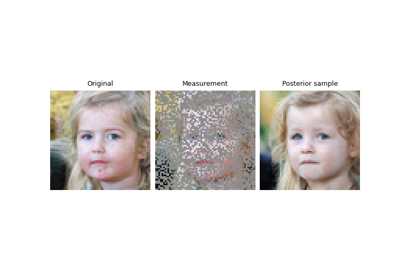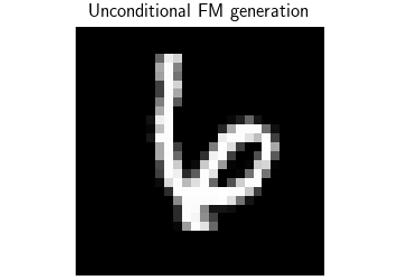EulerSolver#
- class deepinv.sampling.EulerSolver(timesteps, rng=None)[source]#
Bases:
BaseSDESolverEuler-Maruyama solver for SDEs.
This solver uses the Euler-Maruyama method to numerically integrate SDEs. It is a first-order method that approximates the solution using the following update rule:
\[x_{t+dt} = x_t + f(x_t,t)dt + g(t) W_{dt}\]where \(W_t\) is a Gaussian random variable with mean 0 and variance dt.
- Parameters:
timesteps (torch.Tensor) – The time steps at which to evaluate the solution.
rng (torch.Generator) – A random number generator for reproducibility.
Examples using EulerSolver:#

Using state-of-the-art diffusion models from HuggingFace Diffusers with DeepInverse
Using state-of-the-art diffusion models from HuggingFace Diffusers with DeepInverse

Building your diffusion posterior sampling method using SDEs
Building your diffusion posterior sampling method using SDEs

Flow-Matching for posterior sampling and unconditional generation
Flow-Matching for posterior sampling and unconditional generation

